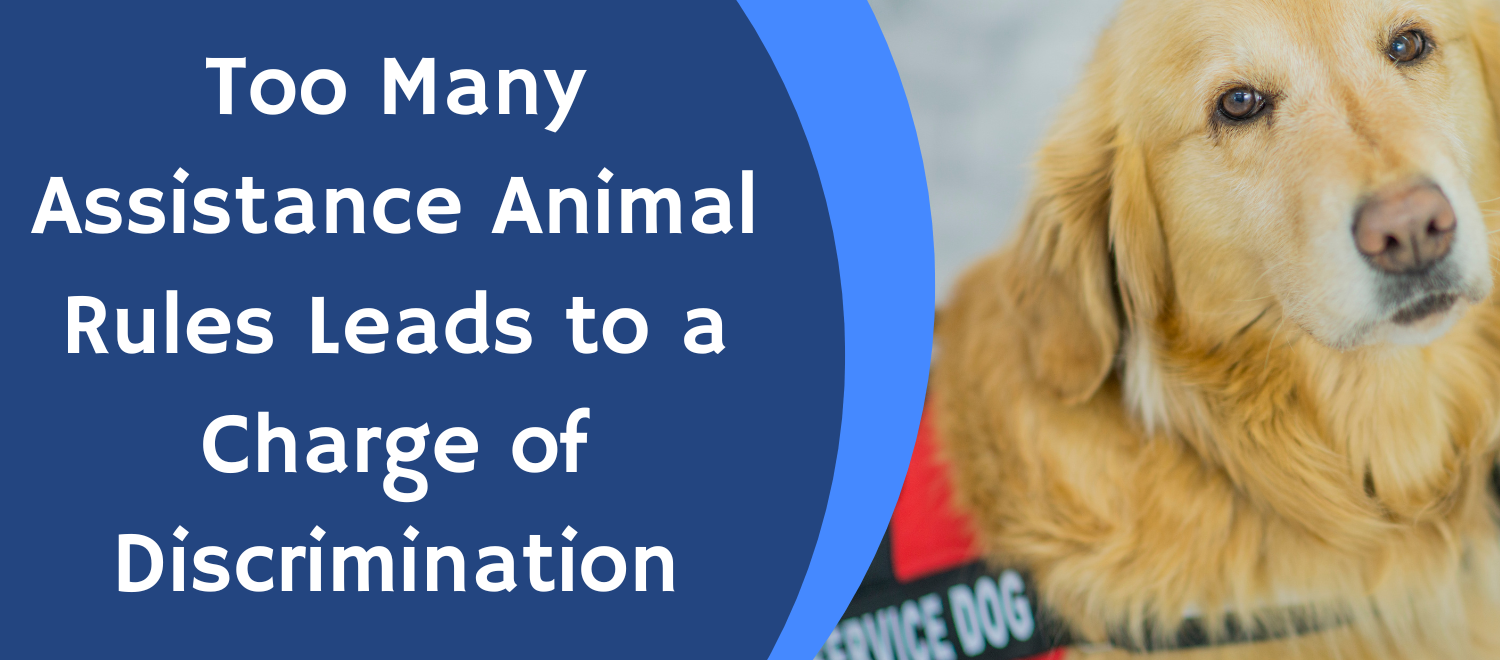A Case Involving Disability Discrimination and Assistance Animals
Overview:
On April 8, 2022, the court entered a consent order in United States v. Carl Torkelson, et al. (E.D. Wash.). The complaint, which was filed on January 28, 2022, alleges that the defendants discriminated on the basis of disability in violation of the Fair Housing Act by imposing an unreasonable set of restrictions on the complainant’s assistance animal and by making statements indicating a preference on the basis of disability. Additional defendants named in the complaint include Candi Torkelson, Tina Bryant, and Torkelson Construction Inc. The consent order requires the defendants to institute a new assistance animal policy and pay the complainant $6,000. The case was referred to the Division after the U.S. Department of Housing and Urban Development (HUD) received a complaint, conducted an investigation, and issued a charge of discrimination.
Case Open Date: Friday, January 28, 2022
Case Name: United States v. Carl Torkelson (E.D. Wash.)
Topic: Civil Rights
Tags: Candi Torkelson; Tina Bryant; Fair Housing Act; Title VIII of the Civil Rights Act 1968; Southern Avenue; firefighter; medical technician; handicap; disability; post-traumatic stress disorder; PTSD; no animals; emotional support dog; anxiety
Industry Code: None
Component: Civil Rights Division
Civil Rights – Housing and Civil Enforcement Section
Case Documents:
Complaint – United States v. Carl Torkelson (E.D. Wash.)
Consent Decree – United States v. Carl Torkelson
Comments:
This case involves conditions placed on an assistance animal, even though it was ultimately approved, and it is a good example that approval of reasonable accommodation isn’t enough to protect yourself from a discrimination complaint. Although the housing provider defendant approved the assistance dog and properly did not charge any fees or deposits, there were a number of factors that HUD believed constituted a violation of the Fair Housing Act.
First, the managers and homeowners made it clear that they were “extremely unhappy” about the request for the animal, as there had apparently been a previous unpleasant experience with a different tenant’s assistance animal. The repeated comments about not wanting to process or approve the request are at the very least discouraging, which could be viewed as a violation by itself. It is important that a housing provider never discourage a tenant from making a request for a reasonable accommodation, regardless of the provider’s opinions.
Second, the housing provider placed certain conditions on the approval of the dog. The tenant was not permitted to leave the dog alone in the rental unit for any period of time, which ultimately resulted in the tenant having to either stay at home all the time or find sitters for the dog when he went to work to socialize, grocery shop, etc. HUD found that this placed an unreasonable burden on the tenant due to his disability. The tenant was also not permitted to walk his dog in the common areas of the property and could only use the bathroom on the unit’s back patio. Again, HUD found that this was not a reasonable request, which restricted the tenant’s use of the property due to his disability.
Enforcing restrictive or burdensome rules on someone because they have requested a reasonable accommodation is just as much of a violation of the FHA as denying it altogether. That being said, it is perfectly acceptable to implement and enforce reasonable animal rules for both pets and assistance animals, like requiring the animal to be on a leash, picking up waste, controlling disruptive or aggressive behavior, or being left alone for an extended period of time.
If you are unsure of your property’s rules, we strongly recommend seeking the advice of a fair housing attorney.

